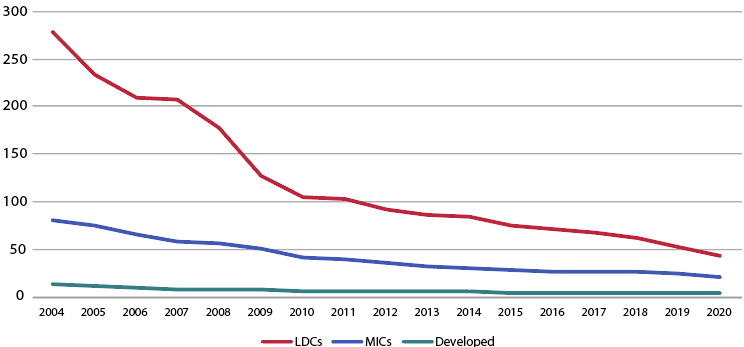Public policy is needed to create the enabling environment at all levels necessary to encourage entrepreneurship and a vibrant domestic business sector. The Monterrey Consensus tasked Member States with building transparent, stable and predictable investment climates, and many countries have made great strides in this area. In the Addis Ababa Action Agenda, countries resolved to continue this work, while aiming for private sector investment that is inclusive and sustainable.
In particular, in the Addis Agenda, Governments commit to:
- Create transparent, stable and predictable investment climates, with proper contract enforcement and respect for property rights, embedded in sound macroeconomic policies and institutions, transparent and stable rules, and free and fair competition.
- Commits to protect labour rights and environmental and health standards in accordance with relevant international standards and agreements, such as the Guiding Principles on Business and Human Rights and the labour standards of ILO, the Convention on the Rights of the Child and key multilateral environmental agreements, for parties to those agreements
Latest developments
Countries have made strides to reduce administrative hurdles for companies, as reflected in the falling cost of starting a business. Last year, 115 economies implemented additional regulatory reforms to ease doing business (World Bank, 2020).
Cost of starting a business
(percentage of income per capita)

Source: World Bank, Doing Business database.
Nonetheless, other impediments remain and there is space for improvement in most countries. One such area would be removing barriers that deter women’s entrepreneurship and labour force participation. Laws limit women’s property rights in 40 countries, and women cannot run a business the same way as men in 115 countries.Lowering the administrative burden of regulatory compliance could also help encourage domestic entrepreneurs to leave the informal sector. By the same token, strengthening trust in the public administration could encourage entrepreneurs to start new businesses in the formal economy.
Business facilitation measures, along with any reduction in regulatory standards, needs to be coherent with sustainable development objectives. To maximize private sector contributions to sustainable development, these measures should go hand in hand with protecting labour rights and environmental and health standards, and disaster risk reduction standards, regulations and legislation, even if these measures may imply increasing the cost of doing business.